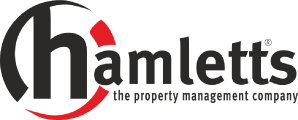First Aid is one of those skills that you rarely ever need. Knowing how to react can keep a minor medical accident from taking turn to worse. You should always call 999 if you at all unsure about the medical situation. But it’s good to know what first aid you can do for the little things.
- Treating a minor Burn: Whenever somebody gets burned, start treating by cooling the damaged skin by running it under cool water for at least 10 minutes. This can be applied for treating minor burns, usually confined to an area less than three inches. Try not to use ice or very cold water as it can cause frostbite.
- Treating a small Cut: Clean the cut with clean water. Never use soap in an open wound. Apply an antibiotic or honey and cover with a bandage. Honey has been used in wound care for thousands of years to prevent infection and speed the healing process.
- Stop bleeding: In case you have someone with a big injury and heavy bleeding it’s best to go over and apply pressure to the wound. First remove and clean any dirt or loose material from the wound. Then find a clean cloth and wrap it. After, apply constant pressure- applying pressure will stop any external bleeding. Try to seek additional medical attention as soon as you can.
- Treating Sprains: Sprains are very painful but they are usually minor and can be easily treated without medical intervention. The first step is to avoid putting any weight/pressure and using the affected limb at all. Ice helps reduce pain and swelling, and should be applied several times throughout the day. A medical bandage or compression sleeve works as well.
- Treating Scrape: First, give the wound a thorough wash with warm water. Apply pressure with a clean cloth if the open area is bleeding. After the bleeding stops, apply an antibiotic ointment and cover the area with a bandage.
- Stopping Nosebleed: The best way to stop a nosebleed is to pinch the soft part of the nose for a minimum of 10 minutes and learn forwards. Pinch the nose just below the bridge. Don’t pinch the nostrils closed by pinching lower. Also apply a cold pack to the bridge of the nose while pinching.
- For Heat Exhaustion: Immediately evade the heat and lay down with feet and legs elevated. Replenish fluids by drinking a lot of water and place a cool cloth on the forehead or back of the neck.
These quick tips on common basic first aid procedures can help get you through a minor crisis, at least until the paramedics arrive or you can get to medical treatment. Knowing basic first aid can mean the difference between life and death in an emergency situation. So knowing some basics is really helpful. But most importantly, stay safe!
Please Note; that this is NOT professional medical advice – professional medical advise should always be sought in the first instance. Hamletts Limited accepts no liability (either civil or criminal) for any issues caused as a result of this blog whether direct or indirect.



